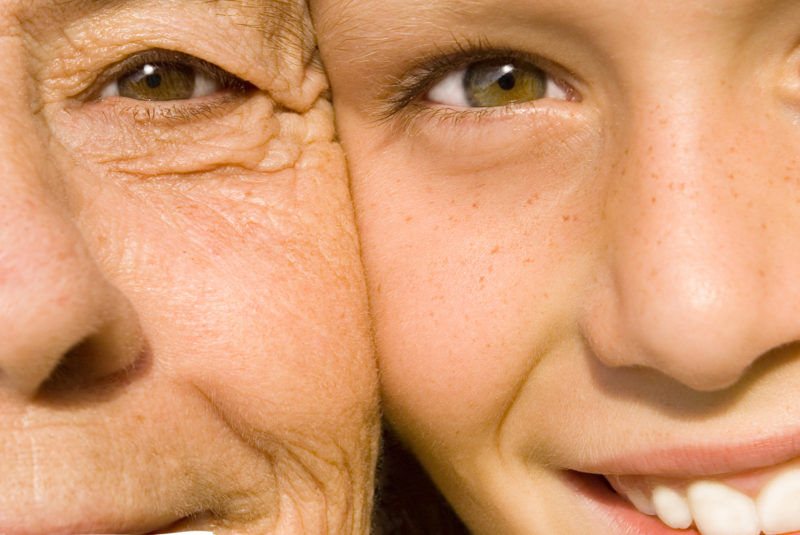
Cataracts are the leading cause of vision impairment, especially in seniors. According to the American Academy of Ophthalmology, cataracts affect approximately 25 million Americans age 40 and older. And by age 75, approximately half of all Americans have cataracts.
In older adults, the eye’s crystalline lens yellows and begins to harden, resulting in blurry vision, dull color perception, and difficulty seeing at night. Cataracts worsen over time, so it’s important to understand the stages of cataract progression in order to treat symptoms early and slow or even stop the progression of cataracts.
An ophthalmologist can provide you with an accurate cataract diagnosis and help you plan an appropriate course of treatment.
What is a Cataract?
As we age, the clear natural lenses of the eye begin to harden and yellow, becoming cloudy. This now opaque area over the lens is called a cataract. Cataracts prevent light rays from passing through the lens, which makes it difficult to see. You can develop a cataract in one or both eyes, but you can’t have more than one cataract per eye and cataracts cannot spread from one eye to the other.
What are the Symptoms of Cataracts?
Cataracts range in terms of severity, and the correct treatment depends on the degree of progression and type of cataracts you have. Early cataract detection signs include:
- Cloudy Vision – One of the most obvious signs of early-stage cataracts is the appearance of noticeable fuzzy spots in your field of vision. These spots typically start out as fairly small aberrations, but over time they will worsen, making daily activities harder than they were before. If you experience sudden and persistent cloudy vision, see an eye doctor as soon as possible before your vision gets any worse.
- Difficulty Seeing at Night – Patients with early-stage cataracts also report gradual worsening of nighttime vision. Cataracts often causes sufferer’s vision to darken or dim, and may also lead to slight tinges of brown or yellow. These early changes may not be noticeable during the day when there’s enough light to compensate for dimming vision, but they can be immediately noticeable at night.
- Increased Light Sensitivity – For people with emerging cataracts issues, discomfort with bright lights will become increasingly noticeable and problematic. Consult your eye doctor if bright lights cause you to squint or close your eyes, or if you develop sudden headaches from flashes of bright light.
- Appearance of Halos and Glare – As the eye lens hardens and becomes cloudy, cataracts sufferers may notice the appearance of halos and glare in their field of vision. Light passing through cataracts is diffracted, causing glare and ringlets around bright sources of light. These may be difficult to notice during the day, but can be immediately noticeable at night.
- Eye Examination Results – In the earliest stages of cataracts, a person may have difficulty noticing changes to their vision. That’s why regular eye examinations are strongly recommended for older adults. Ophthalmologists can detect the presence of cataracts before sufferers report any noticeable vision problems.
How to Slow Down Cataract Progression
Small cataracts do not always develop quickly, so patients and their families usually have plenty of time to consider options and discuss treatment and/or prevention with an ophthalmologist. Some may stop progressing altogether after a certain point, but cataracts never go away on their own, and if they continue to grow they can cause blindness if left untreated.

Although cataracts are not reversible, there are some things you can do that may help slow down the progression of cataracts. Just be sure to speak with an eye doctor first to determine if cataract surgery is needed or recommended before your symptoms get worse.
- Switch to an “eye healthy” diet that includes leafy greens, nuts, whole grains, citrus fruits, and cold-water fish rich in omega-3 fatty acids.
- Wear sunglasses or a brimmed hat outside during the day to protect your eyes from sun exposure, which may speed up the progression of cataracts.
- Talk to your eye doctor if you take eye drops to treat dry eyes or arthritic flare-up in the eyes, as some eye drops may speed up the progression of cataracts.
- Ask about side effects of any prescribed medications that may speed up cataract progression.
- Undergo regular eye examinations to track the progression of cataracts and adjust your course of treatment as necessary before the symptoms become more problematic.
Learn More About Cataract Surgery
If you think you have cataracts, you may be interested in learning about cataract surgery. Although surgery is not required for early-stage cataracts, it can help you avoid worsening vision problems and may even reduce or eliminate your need to wear glasses and contact lenses.
